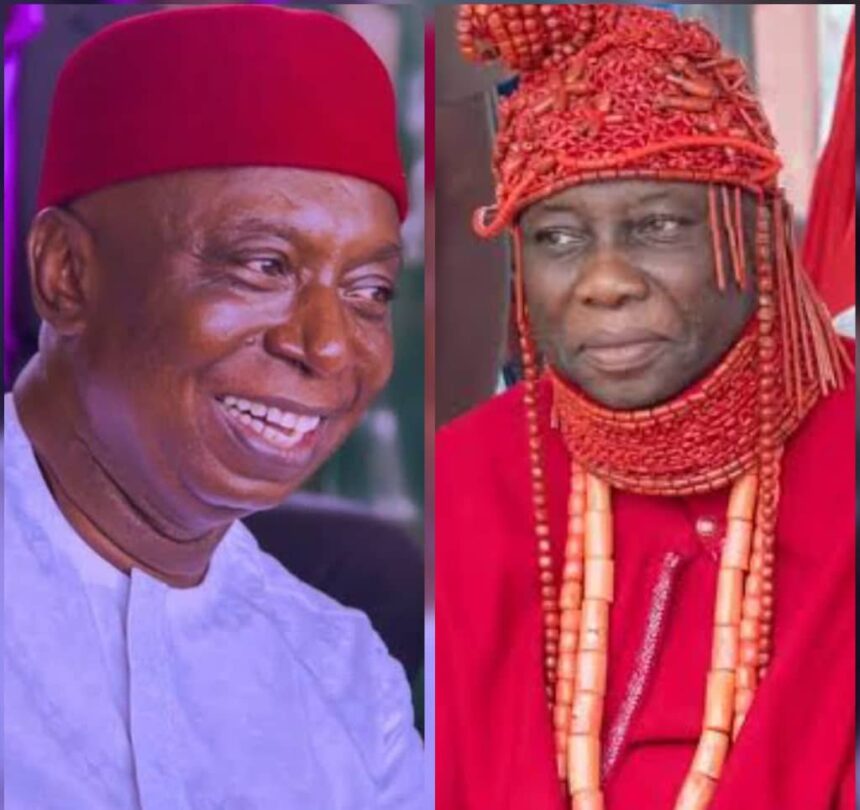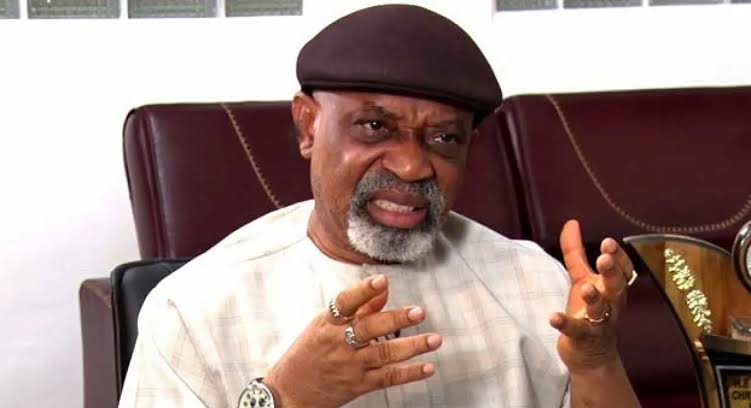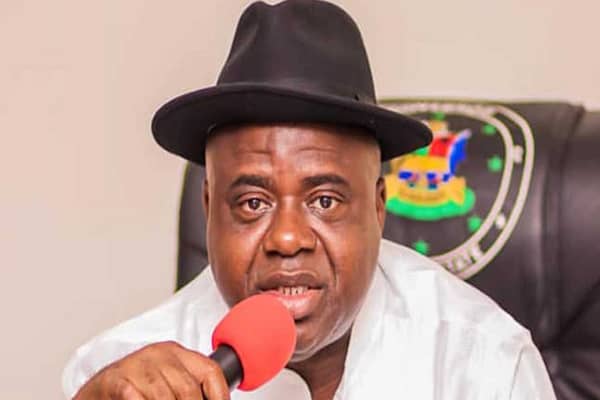The Asagba of Asaba, Prof. Epiphany Azinge, has expressed strong backing for Senator Ned Nwoko in the ongoing push for the creation of Anioma State, underscoring the importance of proper territorial delineation.
Speaking in Asaba, Delta State, the monarch stressed that the Anioma people are not willing to be merged across the Niger River and insisted that Anioma must remain within the South-South geopolitical zone.
Despite his firm stance on the boundaries of the proposed state, the Asagba assured Senator Nwoko that Asaba would fully support his efforts regardless of how the process unfolds. He pledged unwavering solidarity, saying that Asaba would always stand behind the senator and champion his cause.
“Whichever way it goes, know that we from Asaba will always queue behind you. We will be your cheerleaders, supporting you,” he said, adding that the community would actively participate in any public hearings or advocacy programs to strengthen the case for Anioma State.
He emphasized that the people of Asaba would make a strong and convincing argument in favor of Nwoko’s proposals, ensuring that the submissions would be “difficult to puncture.” The monarch praised the senator’s leadership, describing his dedication to the Anioma cause as “indescribable.” He also offered prayers for Nwoko’s success in achieving the long-held aspiration of the Anioma people.
In his remarks, Senator Ned Nwoko reaffirmed that the proposed Anioma State would consist solely of the nine local government areas in Delta North. He stressed that the movement has always been rooted in this framework and has not sought to expand or alter it.
The senator explained that the campaign for Anioma State dates back to the efforts of the region’s forefathers, noting that the struggle began long before the concept of political zoning was introduced in Nigeria. According to him, zoning later emerged as a political arrangement aimed at balancing the distribution of top government positions, such as the presidency, vice presidency, and leadership of the National Assembly.
While acknowledging that Anioma is currently part of the South-South geopolitical zone, Nwoko pointed out that its cultural and historical ties differ significantly from those of other South-South states. He questioned what Anioma shares in common with Bayelsa, Rivers, Akwa Ibom, Cross River, or Edo, despite being grouped in the same zone.
He also clarified that while some have suggested a closer link to the South-East, the identity of the Anioma people should not be conflated with such classifications. For Nwoko and other advocates, the push for Anioma State is rooted in a sense of distinct heritage and the need for governance structures that reflect that identity.
The renewed momentum behind the Anioma State movement has attracted increasing attention from political leaders, traditional rulers, and community stakeholders. Supporters emphasize that the creation of the state would not only preserve the region’s cultural identity but also bring development closer to the people.
With the Asagba of Asaba throwing his weight behind Senator Nwoko, the advocacy is expected to gain even more visibility. Both leaders have signaled their determination to pursue the matter through constitutional processes, public engagement, and sustained political lobbying at the national level.
The movement’s proponents believe that unity among the people of Anioma will be crucial to overcoming the political and legislative hurdles ahead. As the debate over state creation continues in Nigeria, Anioma’s leaders are making clear that their case will be presented with historical depth, legal precision, and broad-based community support.





